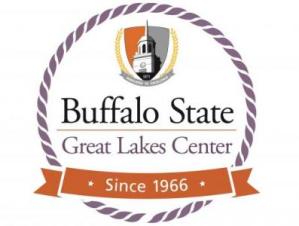

written by Christopher Pennuto
The Great Lakes Center graduate programs are now 10 years old. It hardly seems that much time has passed since the degrees in Great Lakes Environmental Science (GLES) were first announced. The degrees began their existence as Great Lakes Ecosystem Science, to emphasize our belief in a holistic, large-scale understanding of the forces at play in making the Great Lakes what they are today. “Ecosystems” allowed us to consider human dimensions, watershed land use, and historical use (and abuse) in understanding current conditions. The moniker served us well, but students worried it wasn’t as recognizable as a degree title or didn’t convey a broader scope. Thus, we elected for a name change to our current one: Great Lakes Environmental Science.
There have been 30 program graduates in the last 10 years (including those finishing degrees now). Students entering the GLES program had the option of entering as thesis students (M.A.), or internship students (M.S.). The M.S. degree has been affiliated with the national professional science master’s program (PSM) since inception. To have that designation requires degree programs to recognize the co-dependency of science and technology with management and communications. We structured the degree to encourage and prepare natural scientists for careers in both corporate and agency management positions, and linked student requirements with equivalent coursework in the Data Science and Analytics PSM offered through the Math Department. Thus, both degree programs benefited from the shared coursework, and the interactions with young professionals from diverse areas of study.
Throughout this 10-year life, we have explored ways to streamline the degree, yet retain its flexibility to meet student interests and admissions. For example, in keeping with national trends and the growing body of evidence indicating standardized tests often disadvantage large numbers of prospective students, we omitted our GRE (graduate record exam) requirement for admissions. We are currently exploring a merger of the two existing degrees into a single M.S. degree with a thesis or internship option, recognizing the two options serve different student career paths, and reduce some costs. We also now offer a number of competitive tuition scholarships for students thanks to a generous external gift two years ago, made to the GLC. These are called the Huppoch Tuition Scholarship, and all entering students should consult with the GLC Coordinator to determine their eligibility for an award.
Graduates from the GLES programs have done very well in their adventures after completing their area of study. Every student that has completed the program has found employment in their field or is currently pursuing a Ph.D. elsewhere. That is a great track record. GLES graduates are found in nearly all of the agencies
making up our advisory board, as well as the Hamburg school district, NY Parks, and Montana Game & Fish Department. Some thesis topics covered by GLES students include invasive starry stonewort impacts on native macrophyte and macroinvertebrate communities, seasonal diets and body condition in threespine sticklebacks, water chestnut invasion dynamics in the Erie Canal system, and invasive knotweed distribution patterns along local waterways.
Some content on this page is saved in PDF format. To view these files, download Adobe Acrobat Reader free. If you are having trouble reading a document, request an accessible copy of the PDF or Word Document.
